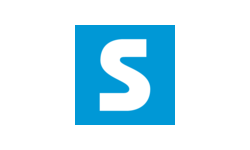The Baskin School of Engineering strongly emphasizes innovation and encourages partnerships between its researchers and the private tech sector. Its alumni, faculty, and students are constantly engaging with industry partners, and sometimes even become industry leaders themselves. Below are some of the companies that have been founded or co-founded by Baskin Engineering affiliates.

Aether Biomachines, Inc.
Aether Biomachines, Inc. was founded by alumni Hannah Meyers, Pavle Jermic, and Chase Armer. It is a stealth-mode startup that incorporates machine learning and synthetic biology to create entirely new compounds and produces previously discovered compounds far more rapidly than was previously possible.

Alliance for Artificial Intelligence in Healthcare (AAIH)
The Alliance for Artificial Intelligence in Healthcare (AAIH) is a global advocacy organization founded in 2018. Its emphasis is on promoting the use of artificial intelligence to improve the quality of healthcare. Its cofounder, Brandon Allgood, received his Ph.D. in physics from UCSC, and is a member of the Baskin School of Engineering Dean’s Council.

Alphonso, Inc.
Alphonso, Inc. was founded in 2012 by Lampros Kalampoukas, a graduate alumnus of computer engineering at UCSC. Alphonso is a TV data and measurement company that uses video AI technology to provide agencies with real-time measurements of TV ad campaigns, closed-loop attribution for TV ads, and TV audience extension across multiple digital devices. The company’s headquarters are located in Mountain View, California, but it has offices across the globe.Engage in boundary-pushing research and education that integrates technical, interpretive, and design work to create human-centered media for societal impact.

Astrea Forensics
Astrea Forensics was founded in 2019 by Baskin Engineering professor Ed Green and his former post-doctoral student Kelly Harkins Kincaid. The company applies ancient DNA techniques and direct genome sequencing to difficult-to-solve forensic casework to solve cold cases and determine the identify of unknown inh3iduals, whether decades or days old. Astrea’s proprietary methods make it possible to recover genetic profiles from rootless hair and other highly degraded samples that otherwise fail traditional forensic DNA testing.

Brilliant
Engage in boundary-pushing research and education that integrates technical, interpretive, and design work to create human-centered media for societal impact.
Brilliant is a tech company co-founded by undergraduate alumnus Aaron Emigh that builds smart-home controls into the walls of your home that are easy for everyone to access and use. Since it was founded in 2015, Brilliant has won numerous awards for smart home products.
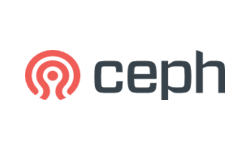
Ceph
Participate in leading-edge discoveries in health engineering by studying areas such as protein engineering, stem cell engineering, and synthetic biology.
Founded by UC Santa Cruz student Sage Weil, Ceph is an open-source distributed storage system. Ceph began as a Ph.D. thesis project – what eventually became the highly successful data storage platform. Sage also created startup Inktank, which was acquired by Red Hat in 2014. Sage continues to support projects, providing inspiration and financial support for the establishment of the Center for Research in Open Source Software (CROSS).

ClaretBio
ClaretBio was founded in 2017 by Kelly Harkins, a former postdoc in the UCSC Paleogenomics Lab. ClaretBio builds tools to analyze and prepare next generation sequencing (NGS) libraries without altering or obliterating the native ends of DNA fragments in order to allow a deeper understanding of degraded DNA molecules

Cloudflare
Cloudflare was co-founded by UCSC alumnus Lee Holloway in 2009, and Holloway still serves as the company’s lead engineer. Holloway and his cofounder, Matthew Prince, originally designed the company as a simple application to find the source of email spam, but quickly expanded to track the source of other internet threats. Today, Cloudflare’s fast global content delivery network serves data from over 90 countries throughout the world, providing increased security for websites while also enhancing their speed and performance.

Code Naturally
Code Naturally is a Santa Cruz-based company that was co-founded by two Baskin School of Engineering alumni, Alfred Young and Sukh Singh, in 2015. It teaches 3rd-9th grade students how to program, while emphasizing a growth mindset to give them greater confidence in their math and computing abilities.

Concur Technologies
Concur Technologies was co-founded by UC Santa Cruz Computer and Informations Sciences alumnus Mike Hilton in 1993. It was acquired by SAP in 2014 and is now SAP Concur, a software company that provides businesses with travel and expense management services.

Confluent
Confluent is an event-streaming platform co-founded by UCSC computer science alumnus Jay Kreps, who still serves as the company’s CEO. Confluent uses Apache Kafka, a community distributed event streaming platform that Kreps had helped develop as an engineer at LinkedIn before he branched off to become the CEO of Confluent in 2014. Thousands of companies, including big names like Netflix, Line, and Microsoft, use Apache Kafka to provide services to their users.

DigitalNEST
DigitalNEST connects youth to a community that helps them build the skills they need to be innovative, creative, and self-sufficient in the tech industry. Founded by alumnus Jacob Martinez, the company focuses on improving underserved communities through helping talented youth map their career paths in tech.

Dovetail Genomics
Dovetail Genomics was founded in 2013 by UC Santa Cruz professor Richard (“Ed”) Green. The company initially opened its doors in a bio-incubator space on the UC Santa Cruz campus, and now employs about 20 people in its own office in Santa Cruz. The company is credited with being the creators of the Chicago™ method to acquire long range information for complex genomes. Green worked with the Office of Management of Intellectual Property at UC Santa Cruz to file a preliminary disclosure in 2013, and saw his patent approved in August of 2016.
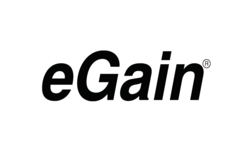
eGain
Computer engineering alumnus Gunjan Sinha started eGain in 1997, after selling his early and successful internet search engine, WhoWhere?, to Lycos. eGain is the leading software company for efficient collaborative retail marketing (eCRM) applications.

Five3 Genomics
Five3 Genomics was started by three Baskin School of Engineering graduates Steven Benz (CEO), J. Zachary (“Zack”) Sanborn (CTO), and Charles Vaske (CSO). The company focuses on cancer genome data processing services. Based in Santa Cruz, California, Five3 Genomics supplies genome processing services for researchers through alignment, mutational calling, rearrangement detection, and copy number estimation.

Fluxus
Fluxus was a startup created by Baskin School of Engineering professor Holger Schmidt in 2017 to commercialize optofluidic technology.

HiPic
HiPic creates advanced drug-sensing technology. It was founded in 2017 and is the latest startup co-founded by Baskin School of Engineering Professor Nader Pourmand, whose other companies include MagArray, BioStinger, and PinPoint Science.

Maverix Biomics
Co-founded by Baskin School of Engineering professor of biomolecular engineering Todd Lowe, Maverix Biomics is a software company that facilitates genome sequencing data. The company’s flagship offering is a software platform for life science researchers to upload data, conduct analyses and put their results in context with other data sources.

MagArray
MagArray is a startup that was co-founded by Baskin School of Engineering professor Nader Pourmand in 2008. The company creates diagnostic devices that uses magneto-nanopdiv technology to allow for earlier and more accurate diagnoses in oncology, cardiology, allergies, and inflammatory and infectious diseases. Professor Pourmand is also co-founder of three other companies, including HiPic, PinPoint Science, and BioStinger.
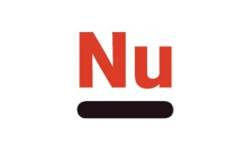
Numerate
Numerate specializes in data-driven drug design through machine learning algorithms and artificial intelligence. It was founded in 2007 by Brandon Allgood, an astrophysics alumus from UCSC who serves on the Baskin Engineering Dean’s Council.

Ontera
Ontera was originally founded as “Two Pore Guys” by William (Bill) Dunbar, a former professor of the Baskin School of Engineering, and co-founder Dan Heller, a UCSC grad. Two Pore Guys became a leader in silicon-based nanopore diagnostics, using revolutionary single-molecule sensor technology. In 2019, the company was rebranded as Ontera, Inc. to reflect a broader mission of providing “biological information for a healthier planet.” Ontera’s primary focus is on supporting sustainable agriculture, using a unique nanopore-based, single-molecule detection platform that can help quickly identify and quantify crop traits, pathogens, and pathogen resistance in the field in less than 20 minutes, enabling precision treatment of crops and thereby reducing the use of inefficient chemical spraying.
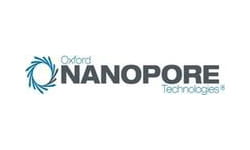
Oxford Nanopore Technologies
Professors David Deamer and Mark Akeson of the Baskin School of Engineering developed the nanopore technology behind the successful sequencing company Oxford Nanopore Technologies. In 2008, Oxford Nanopore Technologies announced an exclusive license agreement to develop nanopore science developed at the University of California, Santa Cruz. Deamer and Akeson continue to collaborate with ONT, and were instrumental in bringing to market the MinION, a pocket-sized portable device for real time biological analysis.

Pinpoint Science
Pinpoint Science was developed by Baskin School of Engineering Professor Nader Pourmand, who has also co-founded three other companies while conducting research at UCSC (MagArray, BioStinger, and HiPic Inc). Pinpoint Science seeks to instantly diagnose disease through novel biosensor technology that will detect specific pathogens and biomolecules. Their handheld device eliminates the need to prepare samples or send them out to a laboratory, greatly reducing the cost of diagnosis and increasing its efficiency.

Pure Storage
Pure Storage provides enterprise data flash storage to help business consolidate applications, simplify integration, provide real-time data streams, and increase productivity. It was founded by UCSC alumni Bo Hong, and Feng Wang, in consultation with computer engineering professor and storage systems researcher Ethan Miller.

Realtime
Realtime is an app designed by alumni Vernon Coleman and Kevin Robertson that allows users to discover experiences and people to share them with.

Rulai
Rulai is an artificial intelligence (AI) company founded by UC Santa Cruz Computer Science and Engineering professor Yi Zhang. The company uses natural language understanding and deep learning technologies to deliver AI virtual customer assistance. Its “smart agents” can answer customer questions and learn from live agent/customer interaction to provide human-like customer engagement.

UpVoice
UpVoice is an app created by UC Santa Cruz student Marius-Paul Dumitrean as his senior design project. The app allows users to contribute money to funding assemblies and protests so that the average “working hero” can be involved in political assemblies, even when he or she has to be at the office.

Vibrado Technologies
Vibrado Technologies was co-founded by UC Santa Cruz alumnus Quinn Jacobson in 2012. The company makes a wearable sensor platform to maximize the benefits of physical training for sports and fitness.

WhoWhere?
WhoWhere? was an early yellow-pages search engine founded by Gunjan Sinha in 1995. Read an interview with Sinha for Voices of Baskin Engineering.

Wiseper
Wiseper is a startup created by Baskin Engineering graduate student Fatemeh Mirzaei. The social platform uses artificial intelligence and community posting to help users sort through conflicting information and reports to make better sense of online media stories.

Immergo Labs
Immergo Labs was co-founded by Baskin Engineering UCSC alumni Aviv Elor, Michael Powell, and Ash Robbins. Incorporating values of tech for social good, inclusivity, and accessibility, Immergo Labs is the world’s first virtual and interactive telehealth platform for physical therapy.

Wise Ancestors
Wise Ancestors was founded by Baskin Engineering Distinguished Professor of Biomolecular Engineering David Haussler, and several current or former BE faculty and staff are on the company’s team. Wise Ancestors is a platform that interweaves genomic sequencing, biobanking, and Indigenous Knowledge to create, fund and complete Conservation Challenges, accelerating the conservation of Earth’s biodiversity for the benefit of all.

